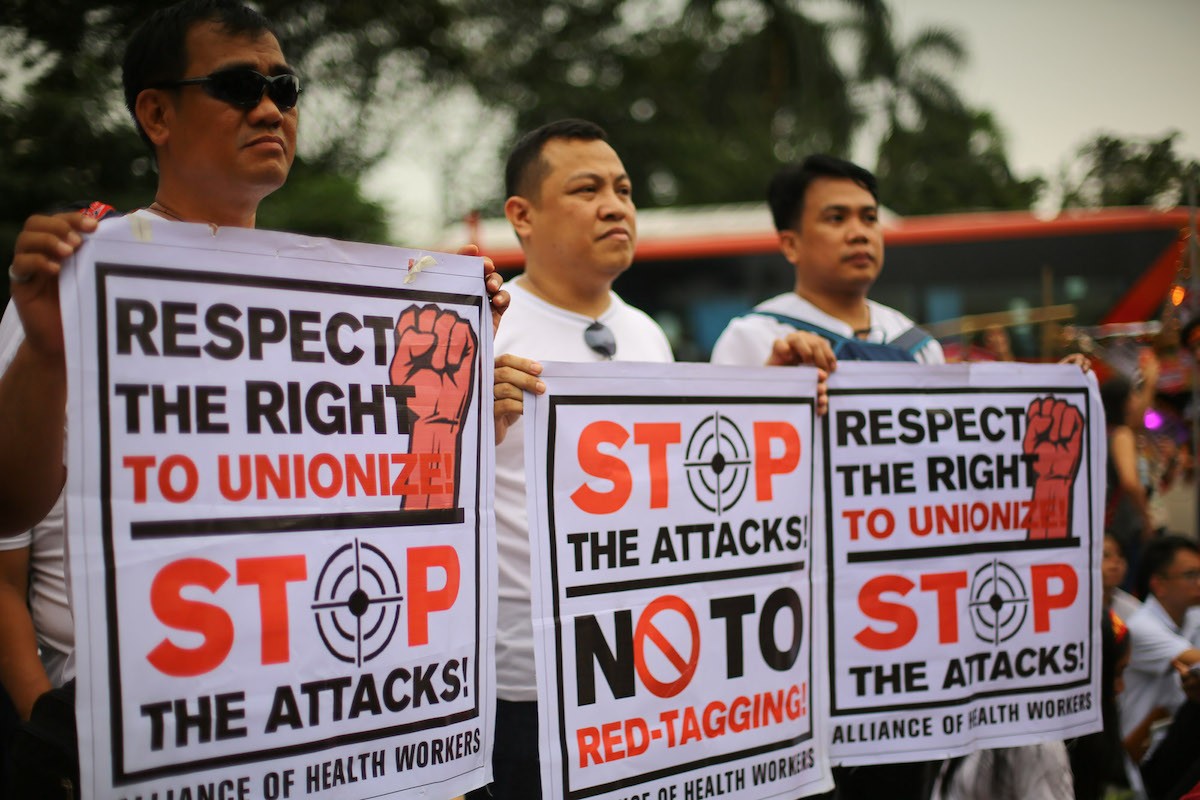Human rights groups and members of the academe decried proposals to ban books that are perceived to be “subversive” and “anti-government.”
“The red-tagging and halting of the distribution of [books] … are shameless and idiotic acts,” said Cristina Palabay, secretary general of human rights group Karapatan.
Among the publications that have been tagged as influenced by communists are those of renowned Filipino writers Malou Jacob, Rommel Rodriguez, Dexter Cayanes, Don Pagusara and Reuel Aguila.
The books were published by the Komisyon sa Wikang Filipino (Commission on the Filipino Language, or KWF), a government agency and regulating body of the Filipino language.
“Those responsible for these acts are deranged individuals who use their platforms … to deny the public with much-needed literature and materials encouraging critical thinking and knowledge on Filipino history and language,” said Palabay.
In a YouTube video, three hosts of Sonshine Media Network International tagged the books as “subversive” allegedly because it cited references written by the Communist Party of the Philippines.
The program also “red-tagged” prominent art critic Alice Guillermo and the late National Artist Bienvenido Lumbera.
After the airing of the program, the KWF reportedly issued a memorandum calling on schools and libraries to pull out the “subversive” books for being “anti-government.”
In a separate statement, however, KWF chairperson Arthur Casanova categorically denied the accusations, adding that calling books “subversive is a dangerous accusation which may already be stepping on the boundaries of freedom of expression and academic freedom.”
“These books which are alleged to be subversive passed through the review process of the KWF,” he said.
“All the books underwent the usual scrutiny that all publications of the KWF must pass, including receiving the imprimatur of the other two full-time commissioners. I did not railroad nor force any publication,” he said.
“The KWF should be at the forefront of the efforts to enrich our language. Contrary to the misguided allegations, the KWF is not limited to publishing dictionaries and technical linguistic materials. Rather, we are tasked to develop and enrich the Filipino language,” said Casanova in a statement.
Casanova did not sign the purported KWF memorandum stopping the publication of the books.
A unity statement from over 30 language, culture and educational departments said that “reading, analyzing, scrutinizing, citing, and using any reading material, regardless of the writer and the publisher, is part of the academic freedom of writers, teachers, researchers, and all citizens.”
“Such citation should not be treated as agreement or sympathy with the cited material, but rather a part of the typical academic and scholarly process of analyzing various sources,” said the group.







